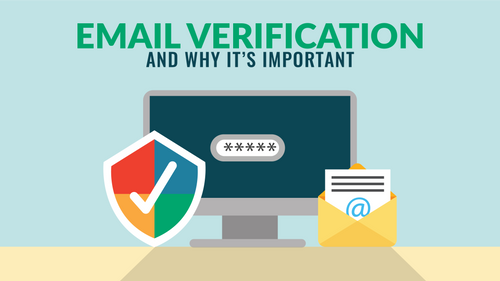Email verification is a critical component of maintaining data quality, enhancing user experience, and ensuring the success of your email communication campaigns. To achieve this, developers often turn to email verification libraries, which are powerful tools designed to validate and verify email addresses efficiently. In this comprehensive guide, we will delve deep into the world of email verification libraries, exploring their significance, popular options, and best practices.
Understanding the Significance of Email Verification
Before we dive into the details of email verification libraries, it's essential to grasp why email verification is crucial:
Data Quality: Accurate email data is vital for communication and decision-making. Verifying email addresses helps maintain data quality by identifying and correcting invalid or inaccurate entries.
User Experience: For users, submitting an incorrect or mistyped email address can lead to frustration. Email verification provides real-time feedback, reducing user errors during registration or data entry.
Spam Prevention: Validating email addresses prevents spam bots from flooding your systems with fake or malicious email addresses.
The Role of Email Verification Libraries
Email verification libraries play a pivotal role in achieving the objectives mentioned above. These libraries offer a range of features and functions designed to validate email addresses effectively. Some of the common tasks they perform include:
Syntax Validation: Checking if the email address adheres to the correct syntax defined by RFC standards.
Domain Validation: Verifying if the email address domain exists and is configured to receive emails.
Disposable Email Detection: Identifying disposable or temporary email addresses that are often associated with spam or fraudulent activities.
MX Record Verification: Ensuring that the email address's domain has valid MX (Mail Exchange) records for receiving emails.
Popular Email Verification Libraries
Now, let's explore some popular email verification libraries that developers frequently use:
AfterShip's Email Verifier (GitHub)
AfterShip's Email Verifier is an open-source library that provides email verification capabilities to PHP developers. It allows you to check the deliverability of an email address and provides detailed validation results.
Geekflare Email Verification API
Geekflare offers an Email Verification API that allows you to validate email addresses in real-time. It checks the syntax, domain, MX records, and disposable email status, helping you maintain clean email lists.
PHP Email Verification Library (GitHub)
This PHP library simplifies email verification by providing an easy-to-use interface for checking email addresses. It's particularly useful for developers working on PHP-based applications.
Django Email Verification (PyPI)
Django Email Verification is a Python package that seamlessly integrates with Django applications. It offers email confirmation functionality and ensures that user email addresses are valid before activation.
Email Validator (npm)
Email Validator is a JavaScript library available on npm that simplifies email validation in Node.js and browser-based applications. It checks the format, domain, and MX records of email addresses.
Best Practices for Using Email Verification Libraries
While email verification libraries simplify the process, it's essential to follow best practices to maximize their benefits:
Real-Time Validation: Whenever possible, implement real-time email verification during user registration or data entry to provide immediate feedback to users.
Batch Processing: For existing databases or email lists, consider batch processing using an email verification library to clean and update email addresses.
Regular Maintenance: Implement periodic email verification checks to ensure ongoing data quality and address changes.
Error Handling: Handle verification errors gracefully and provide clear feedback to users when their email addresses are invalid.
Data Privacy: Be mindful of data privacy and compliance regulations when using email verification services, especially when dealing with user data.
Common Questions About Email Verification Libraries
Q1: Are email verification libraries accurate in detecting disposable email addresses?
A1: Most email verification libraries have mechanisms to detect disposable email addresses, but their accuracy may vary. It's essential to choose a reputable library with updated disposable email databases.
Q2: Can email verification libraries prevent all spam emails?
A2: While email verification helps reduce spam, it may not eliminate all spam emails. Additional spam filtering and security measures are often required.
Q3: Are there email verification libraries for specific programming languages or platforms?
A3: Yes, many email verification libraries are tailored for specific programming languages and platforms, making integration easier.
Conclusion
Email verification libraries are indispensable tools for businesses and developers looking to maintain data quality, enhance user experience, and improve the effectiveness of their email communication. By choosing the right library and following best practices, you can harness the power of email verification to build trust in your data and foster better communication with your audience.



